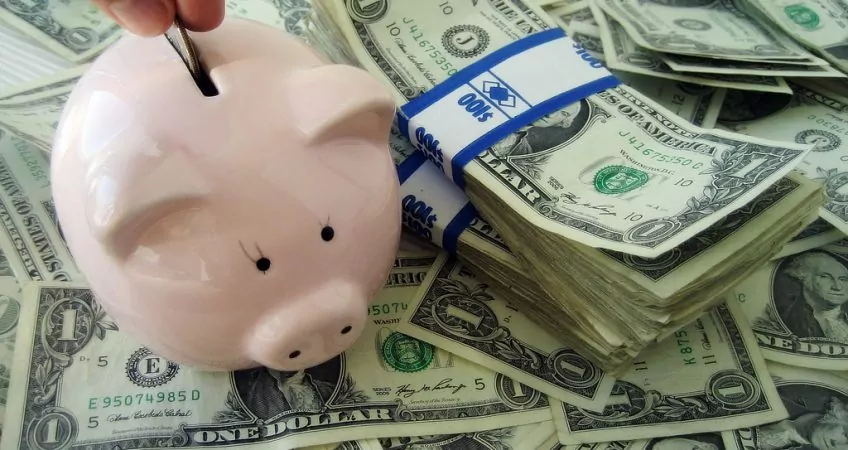
Saving Money In The Face Of Currency Exchange Rates
How To Get The Best Exchange Rate When Moving Money Around The World
I usually ignore foreign exchange rates. You can’t predict them and trying to time them when making a real estate investment is a crap shoot. If you wait too long for an exchange rate to get where you want it to be before sending your money for a real estate purchase, the opportunity can disappear.
That said, you always want to get the best rate possible when transferring money from one currency to another, of course.
I’m facing this challenge right now. I’m in the process of purchasing an apartment in Paris and need to change dollars into euro. While the euro isn’t where I’d like it to be against the dollar (I still remember when the dollar was stronger than the euro back in 2000 to 2002), I have to send the money for the purchase. I can’t wait for the currency to move more in my favor; on the other hand, I’m searching for the best exchange-rate option.
Typically, when I send money to France to pay the bills associated with the apartment I already own there, I use my U.S. bank’s online wire option and accept the rate they give me. Sending a few thousand dollars now and again, this hasn’t seemed like a big deal…not worth the time to organize a better option. Now that I’m sending larger amounts to buy another piece of property, it’s worth the effort.
Frequent travelers understand that you get the worst currency exchange rate at the airport. Changing money at an airport desk, you’ll get a bad rate and you’ll pay an additional fee. You’re a captive customer, desperate for enough local currency to pay for a taxi into town.
Alternatives To Airport Desk Exchange Rates
But you don’t have to be. I strongly suggest that you bypass the airport exchange desks and head for an ATM instead. You’ll generally get a better exchange rate from your bank using an ATM than from an airport kiosk. It won’t be a great rate but good enough when you’re withdrawing a few hundred dollars.
When using a credit card in Europe, many retailers will allow you to select to pay in dollars or euro. Choose to pay in dollars, and the retailer’s bank will do the currency exchange at the rate it chooses (as opposed to your credit card company figuring the exchange). When given a choice, I always choose to have the charge go through in the local currency, as the exchange rate from my credit card company has always proven to be better than the one offered by the retailer’s bank.
Of course, these are small transactions. Wiring money for the purchase of a piece of real estate is a bigger deal. Getting even a slightly better rate than your bank is offering can save you thousands of dollars.
For this type of transaction, an online foreign exchange service is typically the way to go. I’m using one to send my down payment for the new Paris apartment, and, based on the initial exchange rate comparison for this transaction, I’ll save more than US$1,000 by using an online foreign exchange service rather than sending the funds directly from my bank…meaning I’ll save many thousands of dollars when I send the rest of the payment.
These online exchange services, once you have set up an account with them, make the process of moving money around the world from one currency to another simple. You tell them how much you want to send from what currency to what currency. They lock in the exchange rate, direct debit the cash from your bank account, and transfer it in the currency you requested to the destination in the country indicated.
If you need to send money regularly for a mortgage payment or another regularly recurring expense in a foreign currency, some of these agencies even will lock in a future contract so you can know the exchange rate for your monthly transfers for the next year. That service can really help you manage your budget for whatever you’re doing overseas.
While setting up an account with these groups isn’t as bad as opening a new bank account, it does require a bit of “know your client” documentation; they don’t want to get caught up in any potential money-laundering operation. You’ll need to provide some details on the transactions you expect to carry out through them and the currencies you’ll be buying and selling. You’ll also have to share personal details, including address, tax ID number, and a copy of an ID.
Again, I’m not trying to time my currency exchange. I need to get the money to France now to close on the deal. Nor do I have a crystal ball to know which way the dollar will go against the euro in coming weeks or months. I simply want the best currently available rate. The online foreign exchange service I’m working with is giving me that.
Lief Simon
Mailbag
“Lief, you and and Kathleen keep talking about how free you are in Belize. Then why do they fingerprint you when you enter the country? Even here in the States you have to be charged with a crime.”
M.S.
I’ve never been finger-printed entering Belize, and several of our staff has just returned from a trip to Belize. They weren’t fingerprinted either, so I don’t think there’s been any recent change in policy.
The Belize government would have the equipment for this only if the U.S. government gave it to them…and then they wouldn’t want to pay for the electricity to plug in the machines.
Also note that every non-citizen entering the United States is fingerprinted.
Maybe you’re thinking of Panama, where, yes, you’ll be fingerprinted as you pass through immigration.



